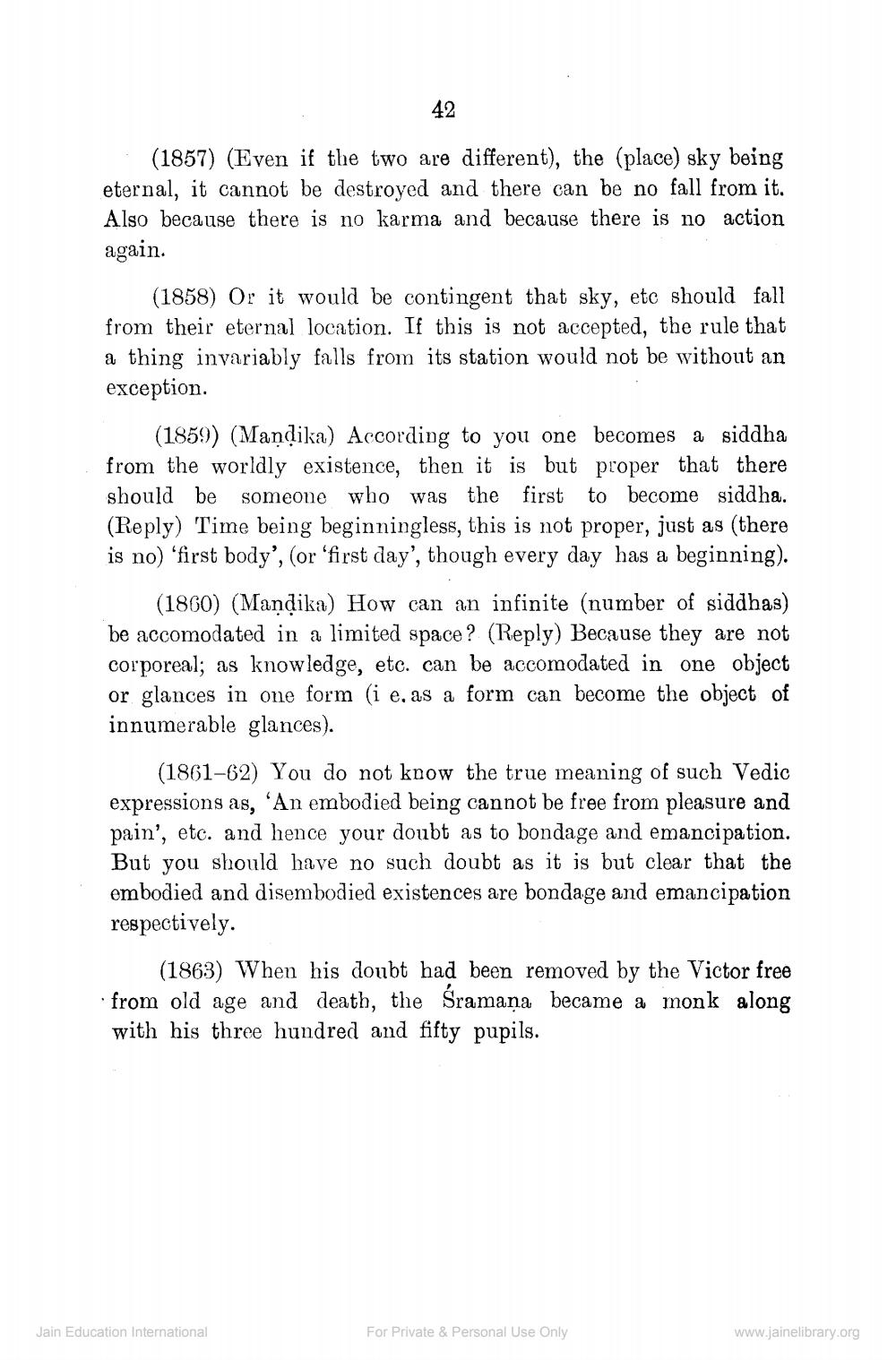________________
42
(1857) (Even if the two are different), the (place) sky being eternal, it cannot be destroyed and there can be no fall from it. Also because there is no karma and because there is no action
again.
(1858) Or it would be contingent that sky, etc should fall from their eternal location. If this is not accepted, the rule that a thing invariably falls from its station would not be without an exception.
(1859) (Mandika) According to you one becomes a siddha from the worldly existence, then it is but proper that there should be someone who was the first to become siddha. (Reply) Time being beginningless, this is not proper, just as (there is no) 'first body', (or 'first day', though every day has a beginning).
(1860) (Mandika) How can an infinite (number of siddhas) be accomodated in a limited space? (Reply) Because they are not corporeal; as knowledge, etc. can be accomodated in one object or glances in one form (i e. as a form can become the object of innumerable glances).
(1861–62) You do not know the true meaning of such Vedic expressions as, 'An embodied being cannot be free from pleasure and pain', etc. and hence your doubt as to bondage and emancipation. But you should have no such doubt as it is but clear that the embodied and disembodied existences are bondage and emancipation respectively.
(1863) When his doubt had been removed by the Victor free from old age and death, the Sramana became a monk along with his three hundred and fifty pupils.
Jain Education International
For Private & Personal Use Only
www.jainelibrary.org




